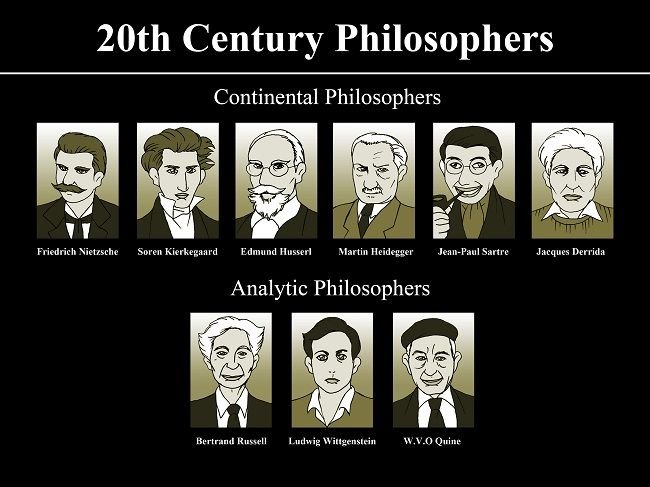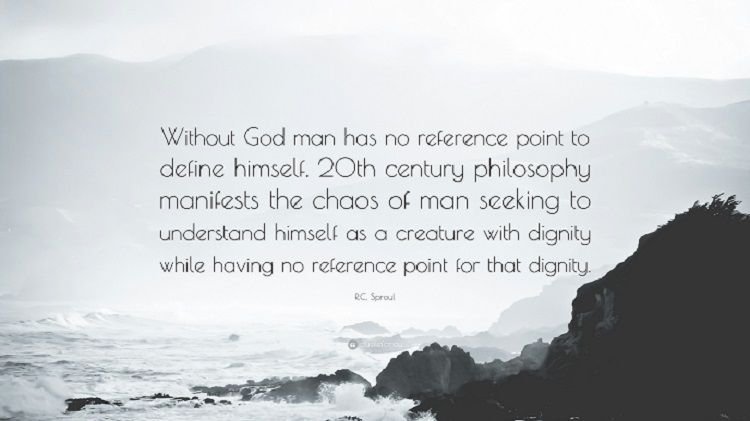
Social Factors for the Formation of Contemporary Psychology
The most important social factor influencing the philosophy of the 20th century is the First World War and above all the results of it. The history of Europe has three blooming years in which revolutionary changes are rooted. The first revolution in the history of Europe was 1648 - the middle of the 17th century, ending the 30-year war and signing the Frankfurt Treaty of Peace. Then the great French revolution of 1789 and the first world war of 1918-1919 when the war ended. As a result of the First World War, it is the collapse of four major empires in Europe - the Russian, Ottoman, German and Austro-Hungarian ones. The nation-building process started with the Peace of Frankfurt (1848) reached its peak in the results of the First World War. In Eastern Europe, a whole system of Eastern countries emerges - Poland, Hungary, Austria, Czechoslovakia, Yugoslavia, Finland, Latvia, Estonia. They are all peripherals of the great empires. In the new nation states, an intelligentsia is formed, which is bilingual in addition to the national language, and it also speaks the language of the collapsed empire, mainly German. Broadly opens the way for the democratization of education in participation in public life, in scientific and artistic creativity. But the First World War has other consequences. Before it there is no mass culture - elite and folk. Afterwards, the masses occupy key positions in country governance. They are the bearers of a new kind of culture that is neither elite nor folk. There is a real sociopsychological breakthrough in the history of Europe. Europe is also experiencing radical changes in mass morality. New values come to life and new ones disappear from old evolving values.

Spiritual factors for the emergence of modern philosophy
Philosophy to First World War has an optimistic spirit. Before her, Europe lived in peace for almost half a century. This affects literature, art, philosophy. The First World War put an end to this harmonious division. The social elite created until the First World War is completely disintegrating. There have also been major changes in scientific development. At the very end of the 19th century, a real revolution in science began, mainly in physics. This also has a beneficial but ultimately negative impact on philosophy. With the First World War, the optimism at that time also disappeared. Part of philosophy turns its back on public issues. Another, on the other hand, deals with solving these problems, but not from society, namely from the personality. To a great extent, the flourishing of the new type of philosophy - the philosophy of the 20th century is determined by democratization, access to education. Broad-quality and high-quality education creates both creators and consumers of cultural values. On the other hand, the accelerated process of education leads to its profanation / quantitative expansion at the expense of quality. This creates a precondition for transforming philosophy into the basis of various ideological trends. There are four major strands of philosophy that have the ambition of becoming a dominant worldview in a united cultural community. Such a philosophy is the philosophy of life, which gradually becomes a national view of the German-speaking world.
General Characteristics of Modern Philosophy:
Main trends in the emergence of modern philosophy.
Philosophical neutrality, within classical philosophy (until the mid-19th century), in a European philosophy, there is a fierce battle between 2 strands - materialism - idealism and between rationalism and empiricism. Neutrality is the rejection of the extremes of opposing conceptual theoretical trends. Unlike previous periods, the philosophy of the 20th century is inhomogeneous. Extensively expanding the scope of philosophical issues, breaking it to the extreme, reinforcing the main feature of non-classical philosophy. Philosophy gradually loses its real and fundamental problem and becomes an interpretation of fragmentary problems.

Basic Ideas of Contemporary Philosophy:
The subject completeness of the 20th century philosophy leads to the specialization of the various (four) main subject areas. First of all, those who deal with the problems of being, the world are the ontological philosophical teachings. The philosophical teachings, which believe that the theory of knowledge is the most important philosophical discipline, form the ideological jet of gnosiological views. The philosophical theories that view man as the central object of philosophy are the anthropological philosophical trends. Practical philosophical teachings - accept the practice as the main subject of philosophy.
General features of the 4 strands:
- Metaphysical / ontological, philosophical strands - set to define philosophy as an independent form of knowledge. They clearly distinguish philosophy from science. Metaphysical / ontological, accept that the world is known exclusively by reason. The senses give a deceptive picture of the world. Our knowledge is adequate and accurate if we rely on the main cognitive tool - reason.
Gnostic philosophical teachings - these teachings assume the theory of knowledge as a basic philosophical discipline. From these positions, they also determine their attitude to science. For them science and philosophy are commensurate. Philosophy is the methodological beginning of science and the superstructure of science. The ultimate views of this philosophical strand are shaped by a particular type of philosophy known as scientia. In their view, science can develop without philosophy, while the opposite is not possible. Philosophy is a kind of parasite for science. Science itself can be a philosophy, in which case philosophy is harmful.
- Anthropological - the main philosophical discipline is ethics. Ethics explains the whole world. Anthropological philosophical teachings cult the individual beginning, not the common, not the community. Anthropological philosophical trends evoke the problem of the meaning of life beyond the boundaries of religion
- The craftsmanship - for which the central problem is the rational purposeful practical activity. His task is to change the world. Philosophy is assigned other functions. The background practice remains the requirement to know and in the foreground comes the new problem - we can. The main idea is pragmatism, Marxism, the second part of the work of Jean Paul Sartre - appeared exactly 100 years later.
The four strands of the philosophy of the 20th century do not appear pure. There are traces of other directions. Their appearance is determined by the predominant, leading issue they deal with.
.. the most intresting thing about the post is at the top ...yess i.e the photo which i tjink is a painting...thats just amazinggggg@godflesh the post reflects the time of the great scholars as u have already quoted...the post gives overall history and the social formation importance
Yes, I know , this is one of my favorites :) It is called "The Lover" by the surrealist René Magritte. I recommend to you to see his other paintings :)
Sir i often get inspired quickly with such posts especially when it contains an artistic workk....sure i will check and thanks once againn
You are welcome :)
Great man
Thank you :)
Ure welcome. support me with your power
Bahut vadhiya history explain kiti h ji
a very good post, incredible information, a very interesting story, makes me want to be like you.
I am glad to hear that :)
Very nice boss
You are welcome.
Nice post. Thumbs up to you 👍
Thanks mate!
Good boss
Thanks :)
You are very senior in steemit and i am very junior in steemit i really appreciate any help from you to help me @weykarma
Good post .. I like your article. Can you help me follow and vote me @hendrimirza
Sure :)
awesome man @godflesh god bless you
Thanks you :)
oww, this is awesome
Cheers! :)
You are awesome dear
very good post, incredible information, a very interesting story, makes me want to be like you.Good post .. I like your article. Can you help me follow and vote me @sr944
Okey :)
Very nice historical vibes there.
You really nailed it .
This piece is very informative
Thank you
Educational post, love to read and I have a new experiences now in your post.. Thank you for share awesome historical philosophy.. :)
Cool :) I'm glad I'm useful with something :P
Ha ha ha ha.. It awesome post.. Rarely done by steemian.. And very love to read like this article :D
Disclaimer: I am just a bot trying to be helpful.
If you believe this post is spam or abuse, please report it to our DiscordYou got a 10.40% upvote from @buildawhale courtesy of @godflesh! #abuse channel.
If you want to support our Curation Digest or our Spam & Abuse prevention efforts, please vote @themarkymark as witness.
Papers within this category include work about 20th century philosophy and major philosophical works from the twentieth century. They are organised according to proper names, with many of the most famous 20th century philosophers having entries.
who is more influential between social factors with psychological factors @godflesh?
Great content and awesome article!
Sir your written qualify was just amazing.. 🐝
Keep continue too give us those type valuable content.
Best of luck sir.. 🌻
Very interesting , makes it much more easier for the readers, thanks for that :)